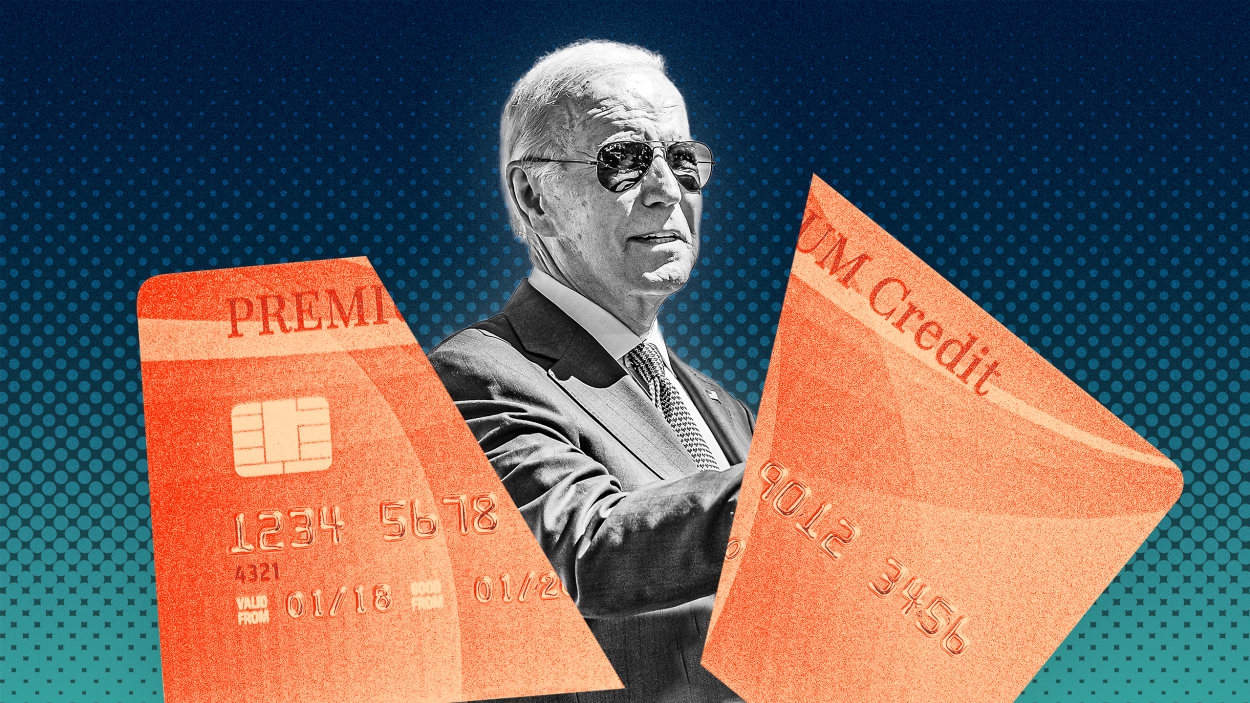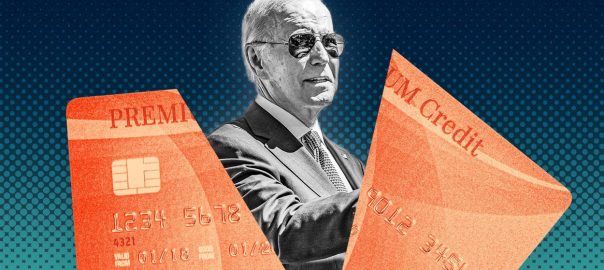President Biden has put exorbitant credit card late fees in his administration’s regulatory crosshairs. On Wednesday, the administration announced the proposal of a new rule to cap those fees at $8, potentially saving American families as much as $9 billion per year. It seeks to reform the practice in other ways, too, like by ending an inflation adjustment that kicks in every year automatically, and lately has allowed the maximum fee allowed by law to climb.
The proposal is being put forward by the Consumer Financial Protection Bureau. Director Rohit Chopra argues the rule could go into effect as soon as 2024, and doesn’t require any congressional approval because the agency was granted that authority under the CARD Act, a 2009 law requiring credit card late fees to be “reasonable and proportional” compared to the cost to process late payments.
Right now, the CARD Act allows credit card companies to charge a maximum fee of $41 for a missed payment, even if the cardholder is only late by a few hours. The Biden administration argues these fees have risen alongside inflation even though the cost to handle them hasn’t changed by much, if any at all, which has led to “billions of dollars in annual junk-fee revenue” for credit card companies. Worse, there’s no proof these fees even deter future late payments, the government adds; they’re often crammed in with far more draconian consequences, like loss of grace periods, interest due, and drops in credit scores.
The CFPB’s rule change would tighten the CARD Act’s so-called immunity provision. The Biden administration argues credit card companies are exploiting that provision. “Over a decade ago, Congress banned excessive credit card late fees, but companies have exploited a regulatory loophole that has allowed them to escape scrutiny for charging an otherwise illegal junk fee,” Chopra said in Wednesday’s statement.
The government estimates that credit card companies’ income from late fees currently exceeds the cost to process late payments by a factor of five. In 2020, credit card companies made $12 billion off of these fees, which accounted for more than 10% of the industry’s fees and interest charges. “Because the immunity provision currently allows issuers to charge late fees of up to $41,” the CFPB writes, a late fee of $8 “would be sufficient for most issuers to cover collection costs incurred as a result of late payments.”

The CFPB has been hinting since last year that it was going to rein in these fees. Last March, it released a report focusing on how much the top companies were earning: Smaller banks and credit unions typically charged late fees of $25 or less, it noted, yet 18 of the top 20 credit card companies were sticking cardholders with fees right at the $41 limit. Consumers in low-income and majority-Black neighborhoods were impacted most, leaving the agency to conclude that the companies “rely on late fees disproportionately paid by economically vulnerable consumers.”
Wednesday’s announcement opens a 30-day public comment period. After reviewing that feedback, the CFPB can begin drafting the new rule.
The president’s progressive critics may find themselves surprised such a move was made by the former Delaware senator, who back in the day was known as “the senator from MBNA,” after a Delaware-based bank that’s now owned by Bank of America. But the proposed cap fits into a larger junk-fee crackdown by his administration. Beyond addressing excessive late fees, he’s also calling on Congress to pass legislation to ban or curtail a variety of other high fees, like phone, cable, and internet early-termination fees, the fees charged by the airlines so family members can sit with children, and also hidden fees tacked onto tickets for sporting events and concerts, which the U.S. Government Accountability Office has found can equal up to 40% of the ticket’s face value.
(8)







